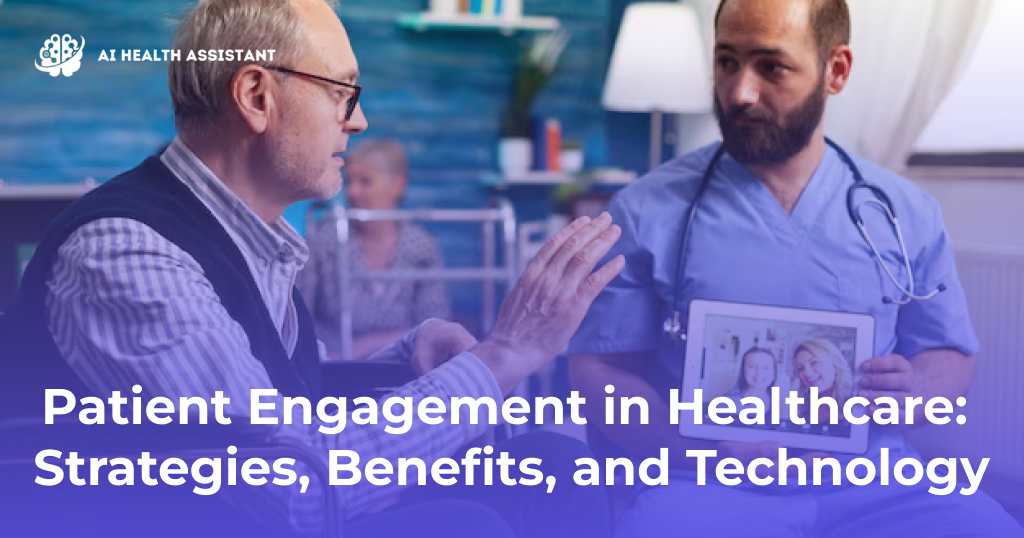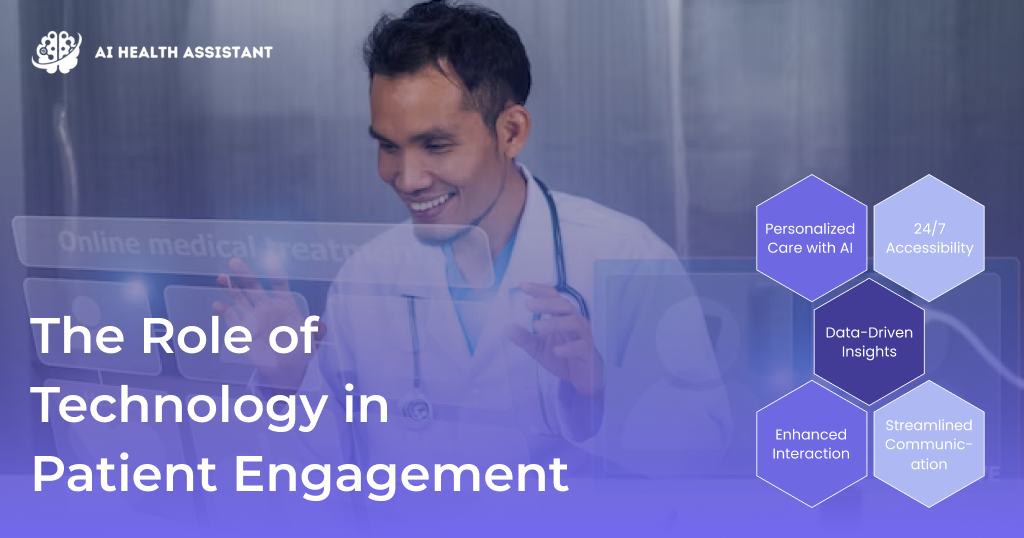
Patient Engagement in Healthcare: Strategies, Benefits, and Technology
In recent years, patient engagement has emerged as a crucial component in transforming healthcare. It’s more than just a buzzword—it represents a fundamental shift towards making patients active participants in their own care. This shift is not only enhancing outcomes but also reshaping the healthcare experience. In this blog, we’ll explore effective strategies for patient engagement, the benefits it brings, and how technology, including platforms like AIHealthAssistant.pro, is playing a pivotal role in this evolution.
Strategies for Effective Patient Engagement
- Personalized Communication
- Tailored Messaging: Healthcare providers are increasingly using personalized communication to engage patients. This means tailoring health advice and updates based on the patient’s specific conditions, preferences, and health history. Personalization helps in making patients feel understood and valued.
- Multichannel Communication: Utilizing multiple channels—such as email, SMS, and patient portals—ensures that patients receive important information in a format they prefer and are more likely to engage with.
- Educational Resources
- Health Literacy: Providing patients with easy-to-understand educational materials empowers them to make informed decisions about their health. Resources can include brochures, videos, and interactive online content that demystify complex medical information.
- Workshops and Webinars: Organizing health education workshops or webinars helps patients gain a deeper understanding of their conditions and the steps they need to take for better health management.
- Involvement in Care Decisions
- Shared Decision-Making: Encouraging patients to participate in their care decisions fosters a sense of control and partnership. Tools like decision aids can help patients understand their options and the potential outcomes of different treatments.
- Patient Feedback: Regularly seeking patient feedback through surveys or discussions helps in tailoring care plans to better meet their needs and preferences.
- Support Systems
- Care Teams: Establishing a supportive care team that includes not just healthcare providers but also family members and caregivers ensures that patients receive holistic support.
- Community Support: Connecting patients with support groups or community resources can provide additional emotional and practical support.
Benefits of Patient Engagement
- Improved Health Outcomes
- Engaged patients are more likely to adhere to treatment plans and make healthier lifestyle choices, leading to better health outcomes. Active participation in care can result in fewer complications and hospitalizations.
- Enhanced Patient Satisfaction
- When patients are involved in their care and feel that their opinions are valued, their satisfaction with healthcare services increases. This positive experience can lead to better adherence to treatment and overall improved health.
- Efficient Use of Healthcare Resources
- Engaged patients are more likely to seek preventative care and follow up on treatment, reducing the need for emergency care and minimizing healthcare costs. This proactive approach helps in managing resources more efficiently.
- Better Communication
- Effective patient engagement fosters clear and open communication between patients and healthcare providers. This transparency helps in addressing concerns promptly and improving the quality of care.
The Role of Technology in Patient Engagement

Technology has revolutionized patient engagement, making it more accessible and effective. AIHealthAssistant.pro is a prime example of how artificial intelligence (AI) can enhance patient engagement. Here’s how technology is driving this transformation:
- Personalized Care with AI
- AIHealthAssistant.pro uses advanced AI algorithms to offer personalized health recommendations and support. By analyzing patient data, the platform provides tailored advice and reminders, helping patients stay on top of their health management.
- 24/7 Accessibility
- AI-powered tools are available around the clock, offering patients immediate assistance and information whenever needed. This continuous access can significantly improve patient engagement and adherence to care plans.
- Data-Driven Insights
- AIHealthAssistant.pro collects and analyzes patient data to provide actionable insights. This data-driven approach helps in predicting potential health issues and customizing care plans based on individual needs.
- Enhanced Interaction
- Through natural language processing and machine learning, AIHealthAssistant.pro can engage in meaningful conversations with patients, answer their questions, and provide support in a user-friendly manner.
- Streamlined Communication
- The platform integrates with existing healthcare systems to ensure that communication between patients and healthcare providers is seamless. This integration helps in maintaining accurate records and facilitating better care coordination.
Conclusion
Patient engagement is a critical aspect of modern healthcare, offering numerous benefits including improved health outcomes, higher patient satisfaction, and more efficient use of resources. By employing strategies like personalized communication and educational resources, and leveraging technology such as AIHealthAssistant.pro, healthcare providers can significantly enhance patient engagement. As we continue to embrace these innovations, the future of healthcare looks promising, with patients playing an integral role in their own health journeys.
By focusing on these strategies and embracing technological advancements, we can move towards a more collaborative and effective healthcare environment.